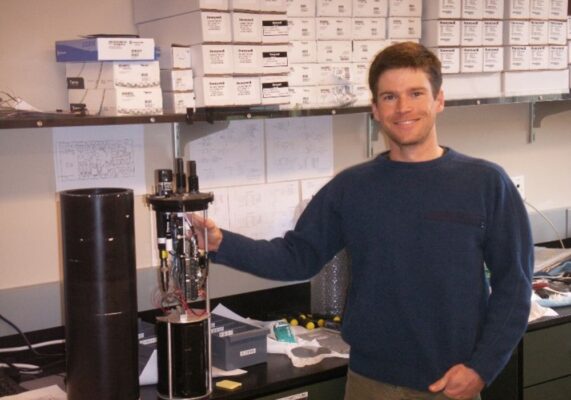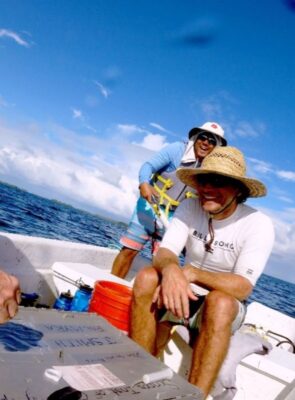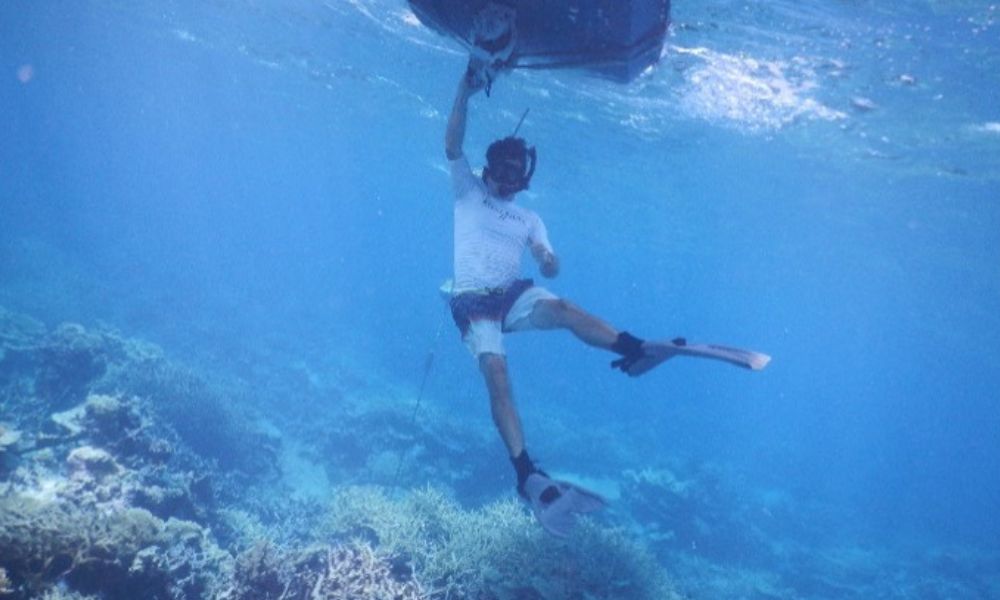Todd Martz stumbled into the field of chemical oceanography as a graduate student in the University of Montana’s chemistry department, where he studied chemical sensor instrumentation that was being developed for both freshwater and seawater applications.
Through his studies, Martz, a 2000 Newman University alumnus, conducted fieldwork in rivers and lakes in Montana. He realized he enjoyed connecting the technical side of lab work to the process of being in the field collecting samples and deploying instruments.
At the end of graduate school, Martz attended a few conferences on ocean science and decided to apply for postdoctoral positions in the field of oceanography. This led to a postdoctoral appointment at the Monterey Bay Aquarium Research Institute, where he spent two years before arriving at the Scripps Institution of Oceanography at the University of California San Diego.

Today, Martz is a professor within the institution. He teaches graduate and undergraduate courses including marine chemistry and ocean instruments and sensors. Martz also works alongside research staff and students who frequently go to sea and operate a variety of instruments used to characterize chemicals in seawater.
“Measurements of seawater chemistry are important to our understanding of how the ocean circulates, how its ecosystem works and, ultimately, how changes in the ocean may affect humans or vice versa,” Martz explained.
He added, “Working with graduate students on research projects is rewarding because they are constantly bringing fresh ideas and vigor into the laboratory. I often find that I learn as much or more from a talented student as they learn during the process of completing their degree.”
One highlight of his time at Scripps thus far is from when he spent several weeks on a remote coral reef (Palmyra Atoll) in support of another research group deploying instruments built in his lab.
“Getting to see the instruments in action and be in the water with them in such a beautiful and unique environment was rewarding,” Martz said.
The year ahead looks busy and exciting for Martz as well. This summer he will be on a research vessel transiting between Goa, India, and Perth, Australia, where he and a team will deploy several autonomous biogeochemical profiling floats across the Indian Ocean as part of the Global Ocean Biogeochemistry Array program.

The lasting impact of Newman
Martz grew up in Wichita and attended Newman from 1996 to 2000, when he received his bachelor’s degrees in chemistry and mathematics. The university provided Martz with a generous academic scholarship, as well as a golf scholarship his first year.
During his sophomore year, Martz also received a service and volunteerism scholarship that involved working at Trees for Life, where he met many wonderful people from locations all over the world.
“I was always interested in science in general but didn’t discover a love for chemistry until my second year at Newman, which meant that I had to take summer classes at Wichita State University and overload my last couple of years to finish in four,” Martz shared. “By my senior year at Newman, I understood which areas of chemistry I preferred, namely analytical and environmental chemistry.”
I am eternally grateful for the high-quality education, wonderful experience and enormously helpful scholarships that Newman provided.
Todd Martz, 2000 Newman alumnus
One person who made a lasting impact on Martz was Professor of Chemistry David Shubert, who was “truly inspirational in the classroom.”
“Dr. Shubert’s enthusiasm for chemistry encouraged me to pursue a career in pure science,” he said. “And although math was always a bit more of a struggle for me, Dan Fitzgerald made calculus fun and encouraged me to stick with it all the way to a bachelor’s degree in the subject.”
After leaving Newman, Martz was fortunate to work with three great mentors who guided him on how to navigate one small corner of the scientific research world.
Overall, Martz said, “I am eternally grateful for the high-quality education, wonderful experience and enormously helpful scholarships that Newman provided.”
Earn a Chemistry Degree
With the Bishop Gerber Science Center and continued external funding, you can expect to learn with state-of-the-art in brand new laboratories and classrooms.

